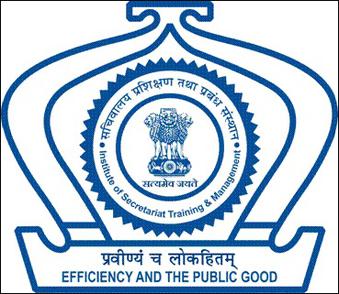
Relevance of Gandhi in the Contemporary World :
Register HereGandhian philosophy and humanism has strength to address the issues of modern governance as well as society. To pay tribute to the Father of Nation on the occasion of Mahatma's 150th Birth Anniversary, Department of Personnel and Training, Government of India in collaboration with Centre for Gandhi and Peace Studies, Indira Gandhi National Open University (IGNOU) and Gandhi Smriti and Darshan Samiti (GSDS), Rajghat, New Delhi is introducing an online certificate course on "Relevance of Gandhi in the Contemporary World" under the Integrated Government Online Training (iGOT) Programme of the Department.
This online course charts Gandhi's career against the backdrop of events of global significance. He had certainly made his mark on history, local and global both. The course consists of three modules having 04 Units each one of them. When we observe subtly at the figure of Gandhi: his beginnings in Gujarat, his formative years in London and South Africa, his satyagrahas in India, his social, economic, political and religious thought, his tenets that to lead a dignified and spiritual life with meaning, principles based on time-tested moral and ethical values are there. Gandhi led India's freedom struggle based on his cardinal principles of Satya, Ahimsa, Swaraj, Swadeshi, Sarvodaya and trusteeship. The first two modules of this course engage the discussion on Gandhian values, legacy and philosophy.
Module-01 Gandhi: Life and His Philosophy introduces Gandhi's life since formative years to different phases and finally attainment of independence of India under his leadership. It offers nuanced understanding of his philosophy and method also for personal and professional trajectory that can play pivotal role in empowerment of entire humanity in the twenty-first century globalised world. His fundamental principles of Satya, Ahimsa and related essential ethical and moral values are explained at length.
Module-02 deals with Gandhi's Political Ideas to comprehend the concept of Swaraj, Swadeshi, Satyagrah and Trusteeship providing a thorough analysis. Gandhi became such a great personality whose monumental contribution inspired and influenced millions of people, including many of the prominent leaders of the world. Gandhi has endured and thrived in the great movements.
The last Module-03 Gandhi and His Legacy focuses on the study and analysis of Gandhi-inspired movements. Was he really an anti-modernist? Did he offer an alternative model of Indian authenticity, potentially outside the violence of modernity? There has recently been a proliferation of scholarship on Gandhi, but why do we still care about him today? It elucidates the evolution and practical application of Gandhian ideas and techniques for movements around the globe in general and India in Particular. Gandhian ideals and practice emphasize gender justice and egalitarianism for women's empowerment, adoption of biocentrism in place of anthropocentric approach for sustainable development and has inspired various pacifist and non-violent movements that led to conflict resolution and peace management in different parts of the World. Gandhism needs to be contextualised, rediscovered and reinterpreted by every generation to suit the needs and aspirations of its time.
The manuscript purportedly contains a validation of the ideas of Gandhi. It underlines the key instances of Gandhi's continuing influence right up to the contemporary period and enables them to critically evaluate his political and philosophical ideas and legacy. The broader objective of this course is to highlights the relevance and effectiveness of Gandhian solutions for contemporary world in general and India in particular. The units in the manuscript help .
In order to understand the present world order this normative framework, as given in the units of the manuscript, would be very useful. This course has also attempted to assess his followers' claim that he can be the 'maker of modern India' in the light of developments. Ethical and moral issues are inextricably linked to Gandhian philosophy that are engaged and debated throughout the course.
Seventy years after his death, Gandhi still matters. His pioneering vision of non-violent society, sustainable world, religious pluralism, women empowerment, emancipation of the marginalised, mainstreaming the poor, deprived and vulnerables and above all unity of humankind is needed now even more than ever before. Gandhi took a holistic view of human life and wanted all aspects of life -social, economic, and political- to be dovetailed for the creation of a just society. His mission in life was attainment of "Swaraj." It is unfortunate that Gandhi's messages and examples have not struck deep roots and his goal of Swaraj remains an unfinished project.
In a way, Gandhian humanism and its practical application is the way forward in a world which echoes the cult of violence, intolerance, hatred and other challenges of present time. In the current scenario of extraordinary crisis, Mahatma Gandhi acquires a greater significance than ever before. At this crucial juncture a fresh look at Mahatma Gandhi's ideas and work become indispensable. It is anticipated that the learners will not only read the text but try to contextualise Gandhi for their problems and predicament by assimilating Gandhian values, vista and vision in their life and mission



